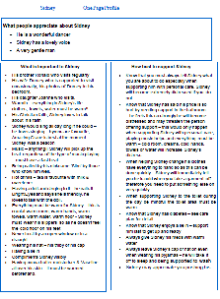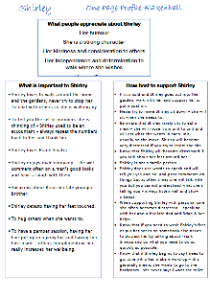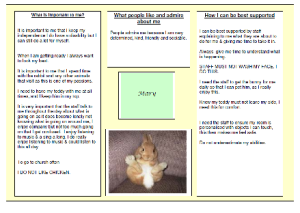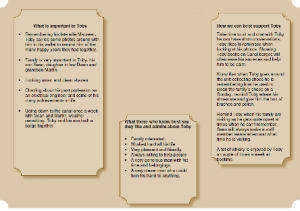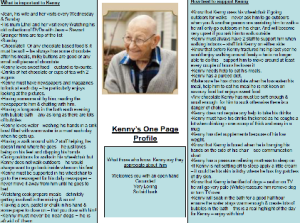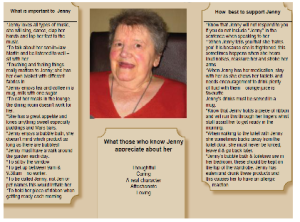Written by Sally Percival
My mum has always been very independent. A few years ago she took a fall at home whilst moving a piece of furniture and broke her leg. It wasn’t diagnosed for a year and in that time she had countless Xrays and hospital visits as her circulation started to fail and her mobility suffered more and more. By the time the doctors picked up the break she was almost unable to walk and the hospital insisted that she was discharged to a care home where she could receive additional support. By this time it wasn’t just her physical health that was deteriorating but she was acting differently too. I know now that these were the early stages of dementia but at the time it just seemed that mum was becoming a bit more forgetful and seemed less bothered about what she said and who could hear her! She would comment loudly about what people were wearing and how they looked – well within earshot and apparently without concern that they might be offended. I knew something was very wrong when one day I visited to find her complaining about not being able to get the mobile phone to work only to realise later that it was the TV remote control she was trying to speak into. It was obvious then that she needed more support but being discharged to a care home did not sit well with either of us.
In fact, mum hated it and I hated seeing her there. I know that there are some very good care homes but this was certainly not one of them. The staff seemed totally disinterested in her needs or in treating her with dignity and respect – they would leave her alone in bed for hours at a time and had taken to hiding her emergency buzzer so she couldn’t call them; “she is a very naughty girl” they told me “always buzzing for no reason”. I’d regularly visit to find they had put her to bed for the night at 4pm in the afternoon and they seemed to do the same with the other people living there too – out of sight out of mind.
I know about and have successfully used one-page profiles with my son for years. He has a diagnosis of autism and using his profiles has helped immensely (in particular in school and to aid his transition) to direct his own support and ensure that people recognise and appreciate his special talents and gifts rather than focusing on his condition. When I introduced the staff team at mum’s care home to her one-page profile they were totally disinterested. I explained that it detailed what was important to her and how best they could support her in an easy to read way – perfect when there are lots of people involved in care. Instead of embracing the tool and using it to support mum well, they would hide it away in her draw and continue along the routines that suited them. In truth I think they thought I was a bit of a hippy and didn’t consider how using a one-page profile could benefit them or my mum. Every visit I would take it out of the draw in mum’s room and display it prominently and every time I left they would put it away again.
It came to a head when I arrived one afternoon to find her alone in bed and choking on her own vomit. She was on her back and couldn’t adjust herself to clear her airways. The emergency buzzer was nowhere to be seen; hidden away from my mum so they didn’t have to respond to her needs. It was terrifying . When I finally was able to stop my mum from choking and settle her down I went to find help. It took me 20 minutes to get someone to assist me. I have never been so enraged in my entire life. I called the social worker and told her I wanted to move her immediately and arrange for a personal care plan and budget for my mum. The social worker told me that individual budgets are not for older people so I made a complaint and got a new social worker. It wasn’t easy but we fought for my mum until we got her the support she so desperately needed.
Mum is now back at home. She pays for her own personal assistants and care agency with her individual budget and is back in the driving seat where she belongs. She had lost 5 stone in the care home but after being home for just a few months she put the weight back on and her health and happiness improved dramatically.
Mum’s one-page profile is now used by her staff team and we update it whenever we need to communicate something new. It even helped us to employ the right people because we had already identified the things that were most important to my mum and how best to support her which meant we could match the right people to the role.
There are many reasons that the care home was not suitable for my mum but I believe that how they reacted to her one-page profile was a clear indication that they had little interest in treating her as an individual, celebrating who she was and supporting her to do the things that were important to her. My mum is happy and well again and loving being back at home. She may be older and more frail and she may be forgetful and even confused at times but she is still an independent strong woman and she is still my mum and deserves to live her life the way she chooses and direct her own support.
Tips for using a one-page profile well with people with dementia:
1) Involve the person, family and friends when creating the one-page profile. You can learn so much by talking to each other and by combining everyone’s experience. When creating my mum’s, myself, my sister some friends and my mum sat down together and had good conversations about her life, her passions and what was important to keep her healthy and well as well as happy and in control.
2) Don’t over complicate your one-page profile, keep it simple and concise.
3) Always ask the person what colours they like, colours are really powerful, my mum was very specific about the colours she wanted, it wouldn’t have felt like her profile if it was red or orange.
4) Don’t forget photos, they are vital, take time to select ones that are meaningful to the person.
For more information about personalised support for people living with dementia please visit our dementia blog.


